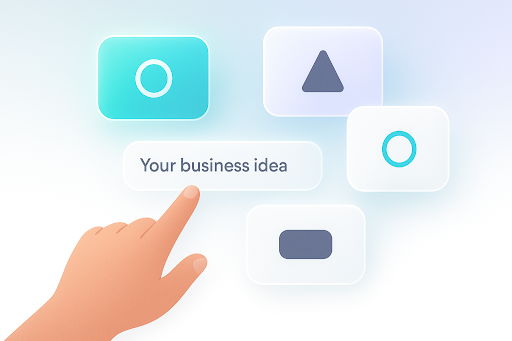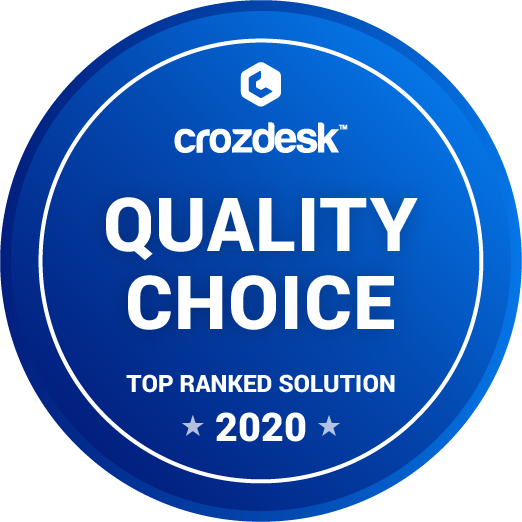
Finding a business name is often one of the most time-consuming parts of building a brand. Entrepreneurs can spend days searching for something that feels original, relevant, and available. To speed up this process, many turn to business name generators. These tools can deliver dozens of options in seconds, but how effective are they really? Can you trust a generator to create a strong foundation for your brand, or are there hidden downsides? In this article, we’ll explore the practical value of business name generators, looking at both their strengths and limitations.
At their core, a business name generator relies on keywords provided by the user. These tools take that input and apply language algorithms to combine words, roots, syllables, and styles. Many generators use built-in templates that reflect common business name structures — such as blends, compound words, or affixation.
Modern generators powered by AI take this further by analyzing tone, industry relevance, and phonetic appeal. They don’t just pair random terms but aim to produce names that match your brand type, audience, and positioning. Some tools even adjust suggestions based on length, tone of voice, and availability across domains and social platforms.
Still, it’s important to remember that even with AI, a generator is only as good as the instructions it receives.
Advantages of using a name generator

Why they can help in the early naming process
Name generators are especially helpful at the beginning of the creative process, when direction is unclear and ideas are limited. They work as a brainstorming accelerator, producing suggestions you might not have considered manually.
Here’s what they offer:
- Fast ideation. Instead of starting from zero, you get instant examples to explore.
- Creative inspiration. The tool can uncover word combinations that feel fresh or unexpected.
- Reduced cognitive load. It allows you to focus on selecting rather than inventing.
- Style testing. You can try formal, playful, modern, or minimalistic directions quickly.
- Non-linear thinking. Generators often jump across categories or metaphors, leading to unique perspectives.
These benefits make name generators a powerful support tool when used with a critical mindset. They don’t replace creativity — they expand it.
Main limitations and risks
Despite their speed and convenience, generators have weaknesses. One of the most common issues is repetition. Since many tools use similar templates, users may end up with names that feel generic or resemble other startups.
Some suggestions lack cultural sensitivity or emotional nuance. A generator doesn’t always understand double meanings, historical context, or industry-specific taboos. You might get a name that sounds good in one language but awkward in another.
There’s also a risk of false originality. Just because a name looks new doesn’t mean it hasn’t been suggested hundreds of times. Without checking for domain or trademark conflicts, a name may already be in use — or too close for legal comfort.
When a generator is especially useful
Generators shine when used during the initial brainstorming phase. If you’re launching a small business, testing an idea, or building a side project, a generator can quickly surface workable naming directions.
They’re also helpful when you’re stuck — unable to generate more ideas or compare styles. By entering different keyword sets, you can explore varied tones and approaches, then refine what resonates most.
This approach is particularly effective when combined with manual editing and human feedback. The generator gives you a base, and your judgment turns it into a real brand.
How to use a generator without losing uniqueness
The key to success is knowing how to control the process. Generators respond to the quality of your input. Avoid generic terms like “best” or “global” and aim for more specific, evocative keywords that reflect your mission or values.
Change the inputs often: use synonyms, adjust tone, and experiment with word length. Don’t settle for the first batch of suggestions. Run multiple rounds with different settings to get fresh ideas.
After shortlisting names, refine them manually. Check for spelling simplicity, pronunciation, emotional tone, and branding potential. The name you choose might not be exactly what the generator offered, but it may be rooted in its suggestions.
What a successful result looks like
If the generator helps you find a name that is legally safe, memorable, and on-brand — that’s success. Even if the perfect name doesn’t come directly from the tool, using it may guide you to a result you wouldn’t have reached alone.
The best outcomes often begin with a generator suggestion and evolve through editing, filtering, and testing. This process leads to a name that feels both strategic and authentic, not random or disconnected.
Frequently asked questions
Can I build a strong brand with a generator name?
Yes, if you treat the generator as a tool — not the final judge. The key is in how you evaluate and adapt the result.
Are names from generators really unique?
That depends on your input and the tool used. Always verify domain and trademark availability before using the name.
Are generators suitable for every industry?
Not always. Highly regulated or niche industries may require expert naming advice due to legal or cultural factors.
How long should I spend with a generator?
Anywhere from 30 minutes to a few hours, depending on how many rounds of testing and filtering you plan to do. Quality takes time.
Raghav is a talented content writer with a passion to create informative and interesting articles. With a degree in English Literature, Raghav possesses an inquisitive mind and a thirst for learning. Raghav is a fact enthusiast who loves to unearth fascinating facts from a wide range of subjects. He firmly believes that learning is a lifelong journey and he is constantly seeking opportunities to increase his knowledge and discover new facts. So make sure to check out Raghav’s work for a wonderful reading.




